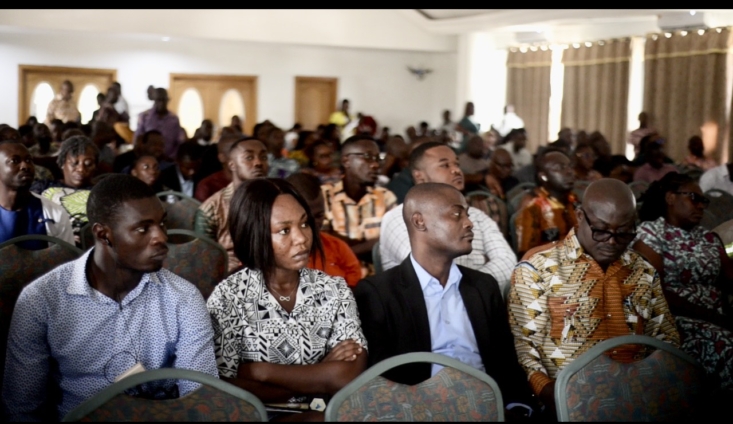About 15.2% of female adolescents in Ghana aged 15-19 have ever been pregnant, underscoring the prevalence of teenage motherhood.
The prevalence within the age range is almost one-fifth of the global prevalence.
The regional disparities are striking, with teenage pregnancy rates ranging from 6% in Greater Accra to 26% in the Savannah Region.
The alarming prevalence of teenage motherhood recorded a decline from 19% to 11% since 1988.
This was revealed at a zonal dissemination of the Ghana 2022 Demographic and Health Survey.
These statistics highlight a complex landscape of adolescent pregnancy and motherhood with significant regional variations.
The Ashanti region is the second highest with 24% of adolescent pregnancies.
The dissemination of the 2022 Demographic and Health Survey assembled health expects, district and assembly health executives to discuss the implications of the health survey numbers.
Head of the Social Statistics Section at the Ghana Statistical Service, Sarah Woode explained "It is not the best that within that age period we are having as many young women being pregnant."
"This is a worrying situation that policymakers should do something about,” she said.

The Ghana 2022 Demographic and Health Survey is a population-level survey designed to monitor and assess progress in the utilization and management of healthcare services across all 16 regions of the country.
The five-week dissemination exercise focused on data generated from 15 target areas including, child health, malaria, Infant and Child Mortality, HIV/AIDS and Health Insurance.
Other exploits include Marriage and Sexuality, Fertility, Family Planning, Household Water and Sanitation, Women's Empowerment, Domestic Violence and Agency, Consent and Coercion.
Director of Regional Offices of the Ghana Statistical Service, Emmanuel George Osei, says the report will provide a vital source of information for the Ministry of Health, enabling the measurement of outcomes and impacts of health programs.

“Health facilities use our data a lot. This guides them in their policy evaluation and formulation regarding health issues in the country. The Ghana health service and the health ministry can use this in the light as well,” he said.
Latest Stories
-
How does the new Club World Cup work, and why is it so controversial?
11 mins -
Nana Kwame Bediako proposes construction of more state-owned football academies
19 mins -
Watching football frequently is a waste of time – Nana Kwame Bediako
51 mins -
‘We have wasted taxpayers money’ – Herbert Mensah on Ghana’s sporting decline
1 hour -
No African-based quality; achieve international healthcare standards with local solutions – SafeCare Founder
2 hours -
UHC alone insufficient without quality healthcare – PharmAccess CEO warns
2 hours -
CHAG to receive GH¢2.2bn boost; GH¢110m earmarked for 2025 recruitment – MoH
2 hours -
Ghana Industry CEO Awards: Bright Ladzekpo is Most Respected Advertising CEO
3 hours -
Video: Fatawu Issahaku joins Leicester dressing room celebrations after win over West Ham
3 hours -
Kempinski lights up the festive season in grand style
3 hours -
‘We’ll seal every ballot box’ – NDC’s Tanko-Computer slams Ashanti Regional EC boss for blocking party seals
3 hours -
39 CHAG facilities achieve SafeCare Level 4 – Executive Director
3 hours -
Election 2024: NDC elders asks polling agents to uphold their duties and safeguard Ghana’s future
4 hours -
Bank boss takes pay cut after employee ‘tried to kill clients’
4 hours -
Man jailed four years for threatening to shoot, kill citizens during Dec. 7 elections
5 hours

